We weren’t sure he’d make it through the night.
The old man—Arthur Bennett—had been admitted three days earlier with pneumonia. He was 87, frail, and the infection had spread quickly. The doctors did what they could, but they warned us: his lungs were weak. His body was tired. It was a matter of time.
The monitors beeped steadily in his hospital room, filling the sterile space with an odd sense of rhythm. Nurses came and went, checking vitals, adjusting medication, whispering updates.
But through it all, Arthur kept murmuring one word.
“Murphy…”
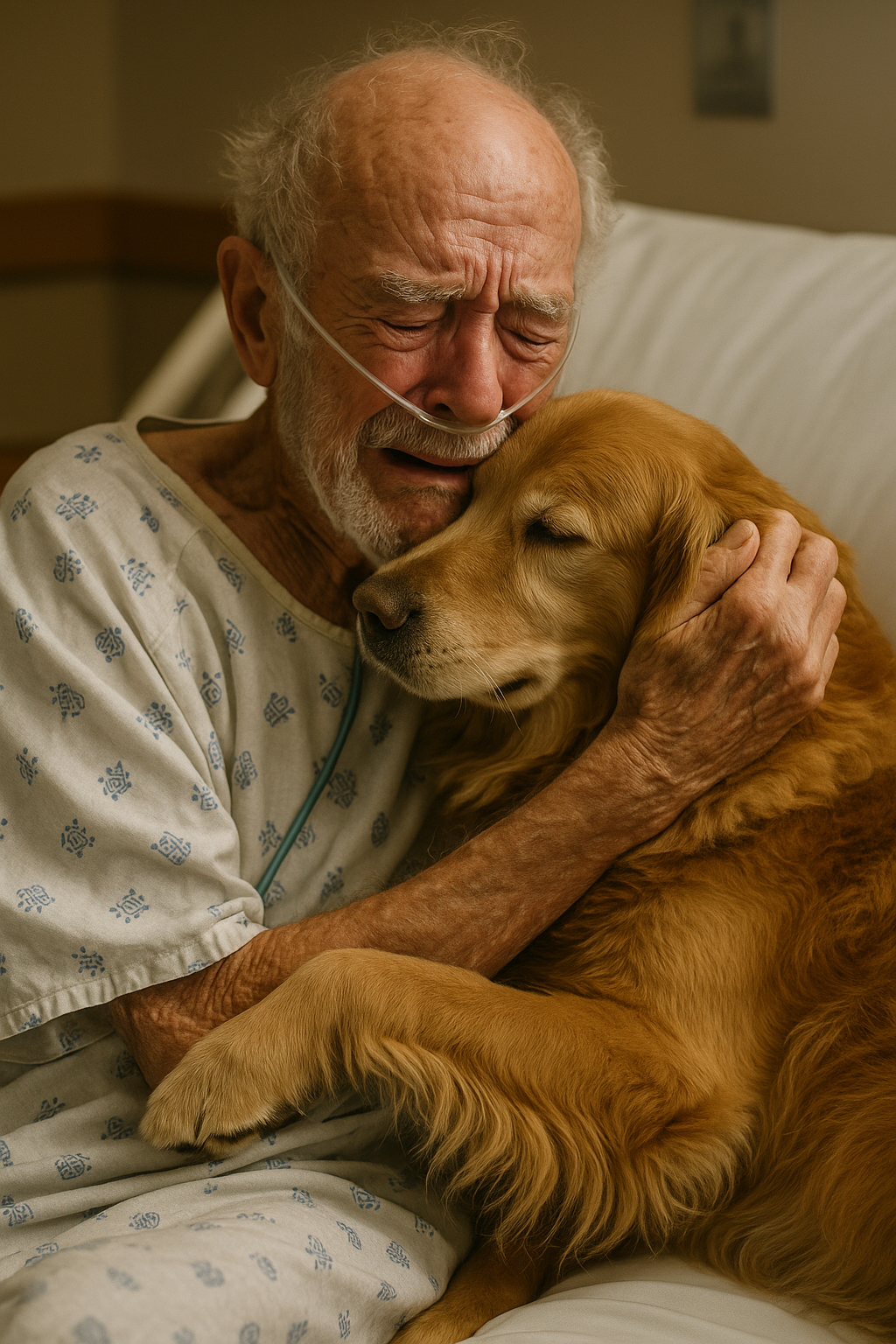
At first, we assumed Murphy was someone from his past. A son? A war buddy? A brother? The name came out like a breath—gentle but persistent—through cracked lips and shallow gasps.
“Murphy…”
His daughter, Julie, hadn’t arrived yet—she was still hours away, driving in from Ohio. I was just a volunteer, sitting beside him, holding his hand. Not family. Not friend. But someone who cared enough to stay.
I leaned in closer and whispered, “Arthur… who’s Murphy?”
His eyes fluttered open, then shut again. It took him a few seconds, but eventually, he whispered, “My good boy… I miss my good boy…”
That’s when everything clicked.
I called Julie immediately.
“Julie, do you know who Murphy is?”
There was silence on the other end. Then her voice cracked.
“Oh… Oh God. Murphy’s his dog. His Golden Retriever. Thirteen years old. We had to leave him with my brother when Dad was admitted.”
I knew what I had to do.
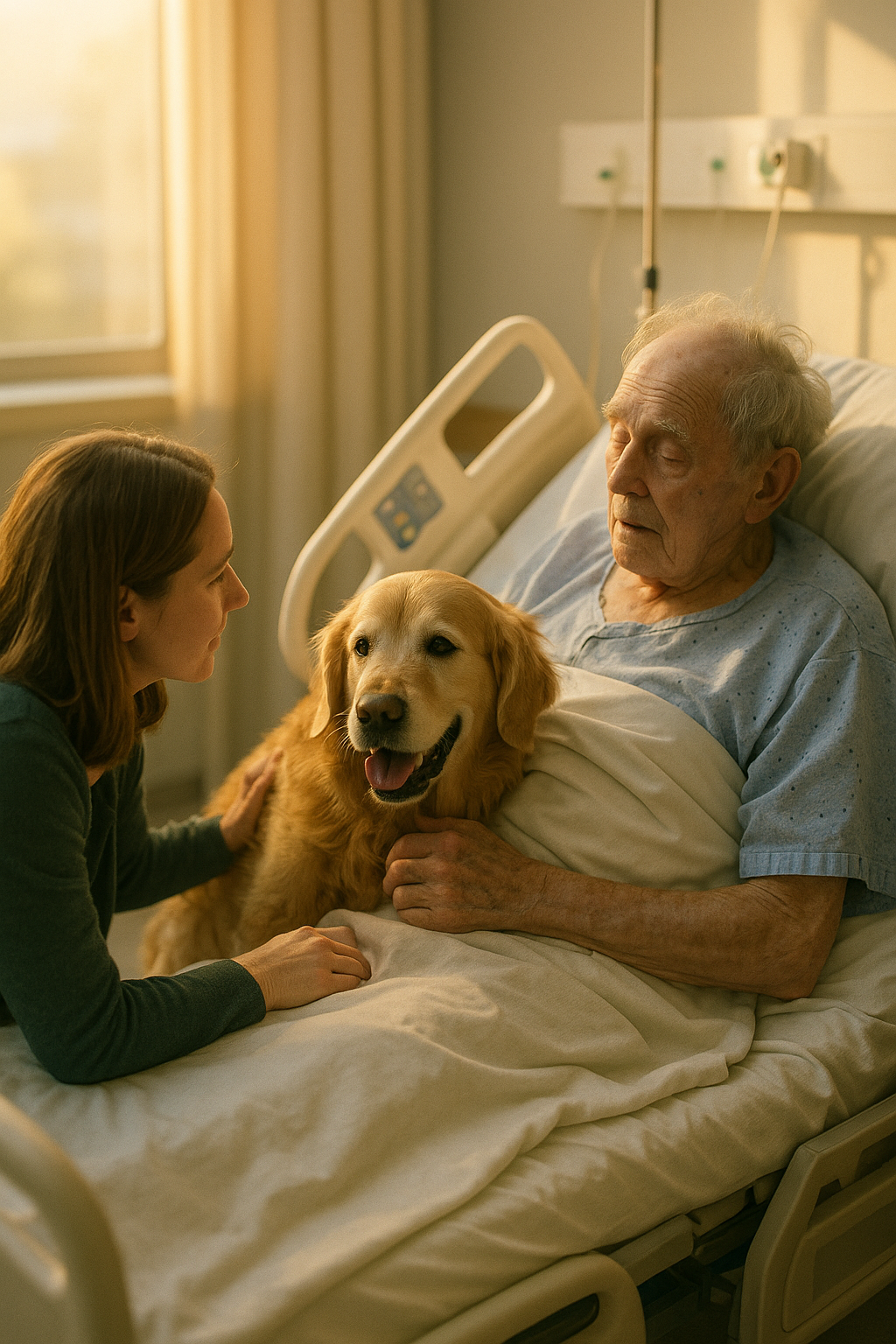
It took some calls. A few raised eyebrows. A discussion with the hospital’s head nurse, followed by one with security. Hospitals don’t usually allow animals beyond the front lobby—but this wasn’t a usual case. This was about a man on the edge of life, calling out for the one companion who had always been there.
Eventually, they made an exception.
Three hours later, as the sun dipped below the horizon and cast a warm, amber glow over the room, the door slowly opened.
In walked Murphy.
A little older. A little slower. But unmistakably noble, with soft brown eyes and a tail that wagged the moment he saw the man in the bed.
Julie knelt down beside Murphy and whispered, “Go say hi, boy. He’s been waiting.”
Murphy padded forward, calm and sure, as though he understood the gravity of the moment. He gently placed his paws on the edge of the hospital bed and rested his chin on Arthur’s chest.
And just like that—like a scene from a movie—Arthur opened his eyes wide.
“Murphy…”
His voice was stronger now. Clearer. The smile that broke across his face was something I’ll never forget.
Murphy gave a soft, muffled whimper and began licking Arthur’s hand.
Tears fell from Arthur’s eyes. Then from Julie’s. Then mine.
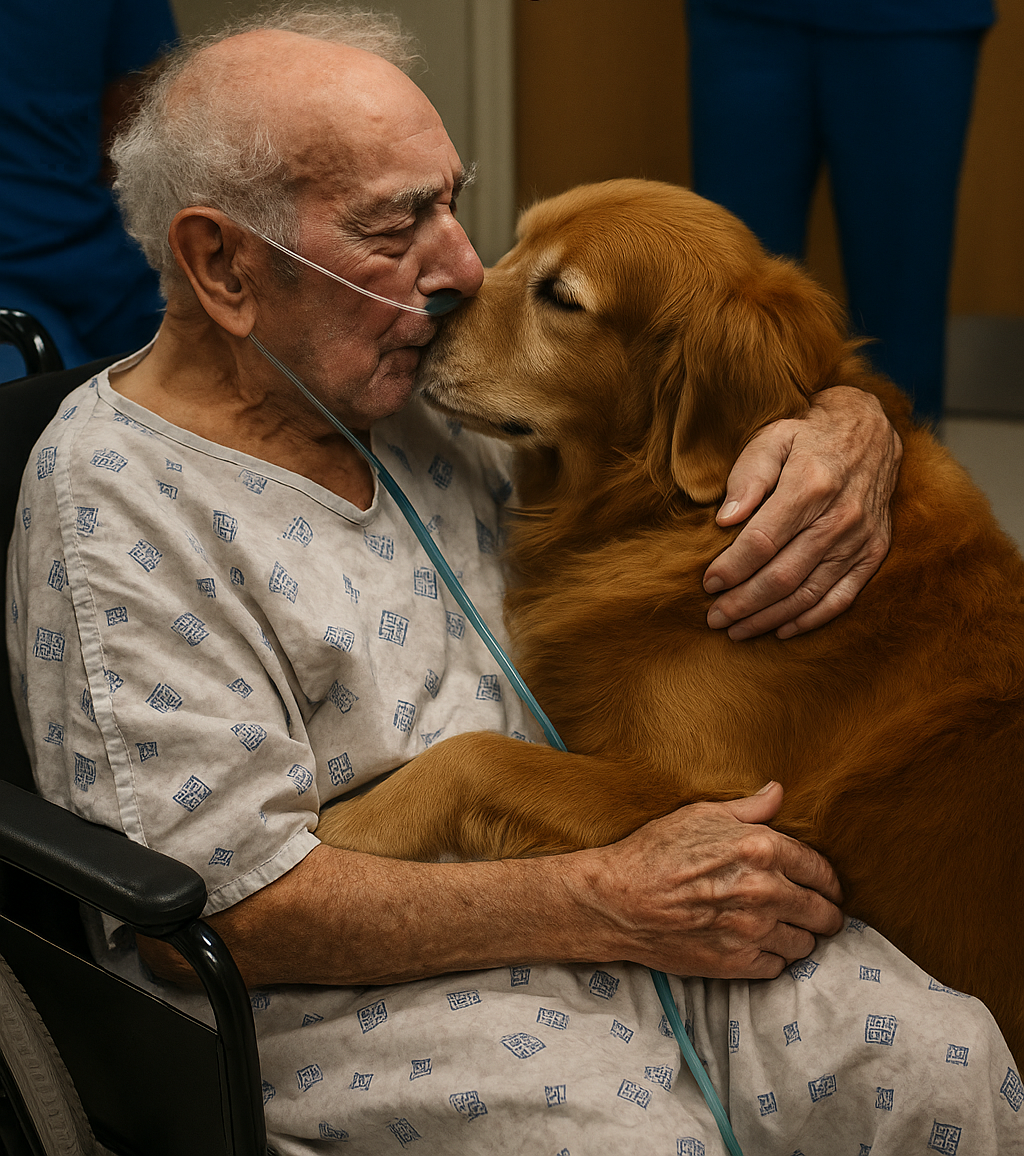
For nearly an hour, Arthur stroked Murphy’s fur, whispering memories. “You remember the lake house? You’d chase ducks all day… You hated the vacuum…”
His oxygen numbers began to stabilize. His heartbeat steadied. It was as if Murphy had breathed life back into him.
That night, Arthur didn’t just survive—he improved.
By morning, he was sitting up, asking for eggs and toast.
The nurses called it a miracle. The doctors were baffled. But we knew.
Murphy did it.
Arthur stayed in the hospital another week. Every day, Murphy visited, sitting quietly beside the bed, his head on Arthur’s lap. The nurses brought him little treats, and even the doctors began stopping by just to see “the dog who brought him back.”
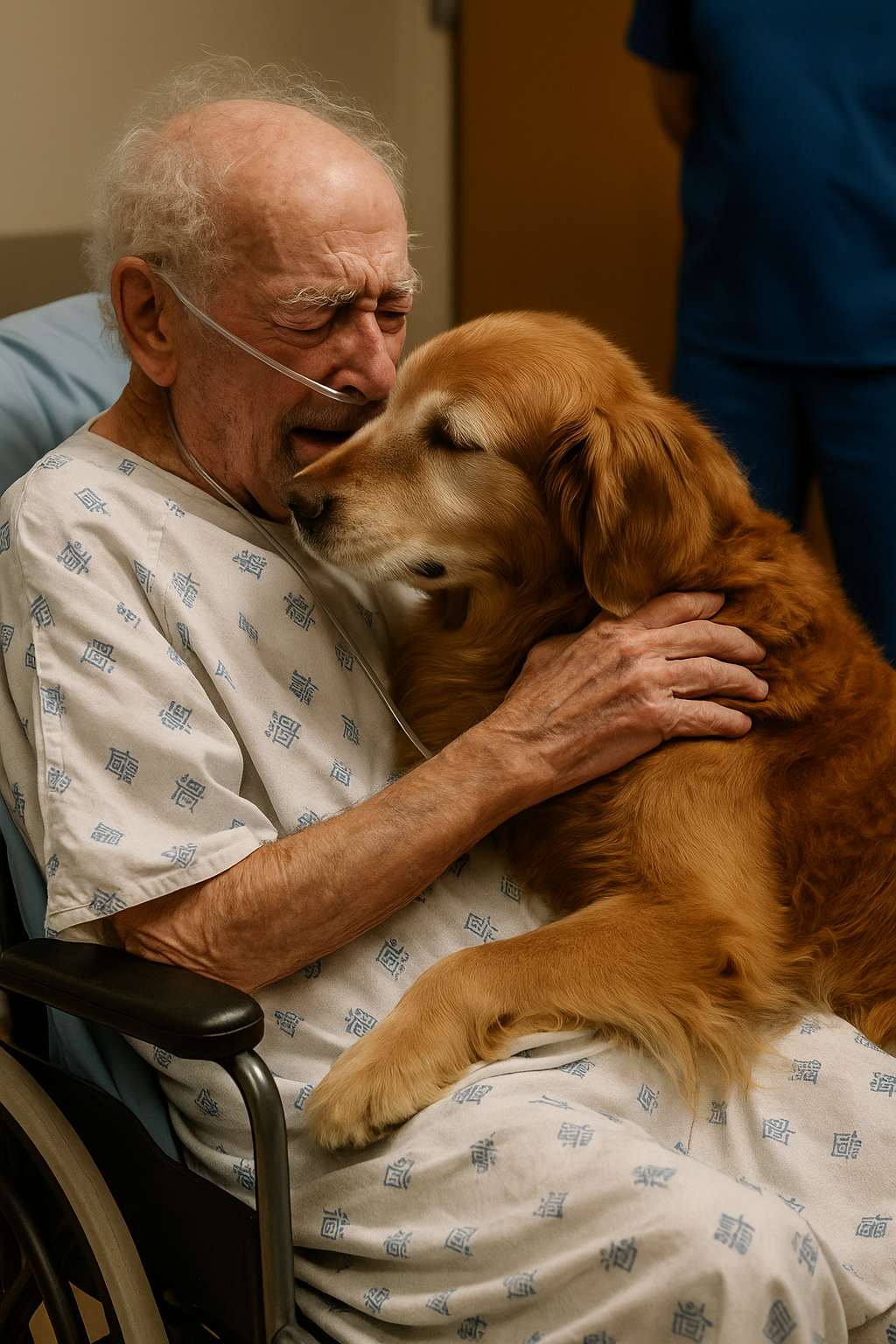
On Arthur’s final day in the hospital, he was wheeled outside for some fresh air. Murphy walked beside him like a trained nurse, keeping pace with the wheelchair.
Arthur smiled as he looked at the sky, held Murphy’s paw, and whispered, “One more adventure, old friend. Just you and me.”
Julie told me later that Arthur lived another six months at home—with Murphy by his side every single day. They went on slow walks, shared peanut butter sandwiches, and fell asleep each night in the same old recliner.
When Arthur passed peacefully one morning, Murphy was curled up at his feet.
Julie started a foundation in her father’s memory. It’s called “Murphy’s Wish.” They now work with hospitals and hospice centers to allow pet visitations for terminal patients. Their mission is simple: to make sure no one has to say goodbye alone.
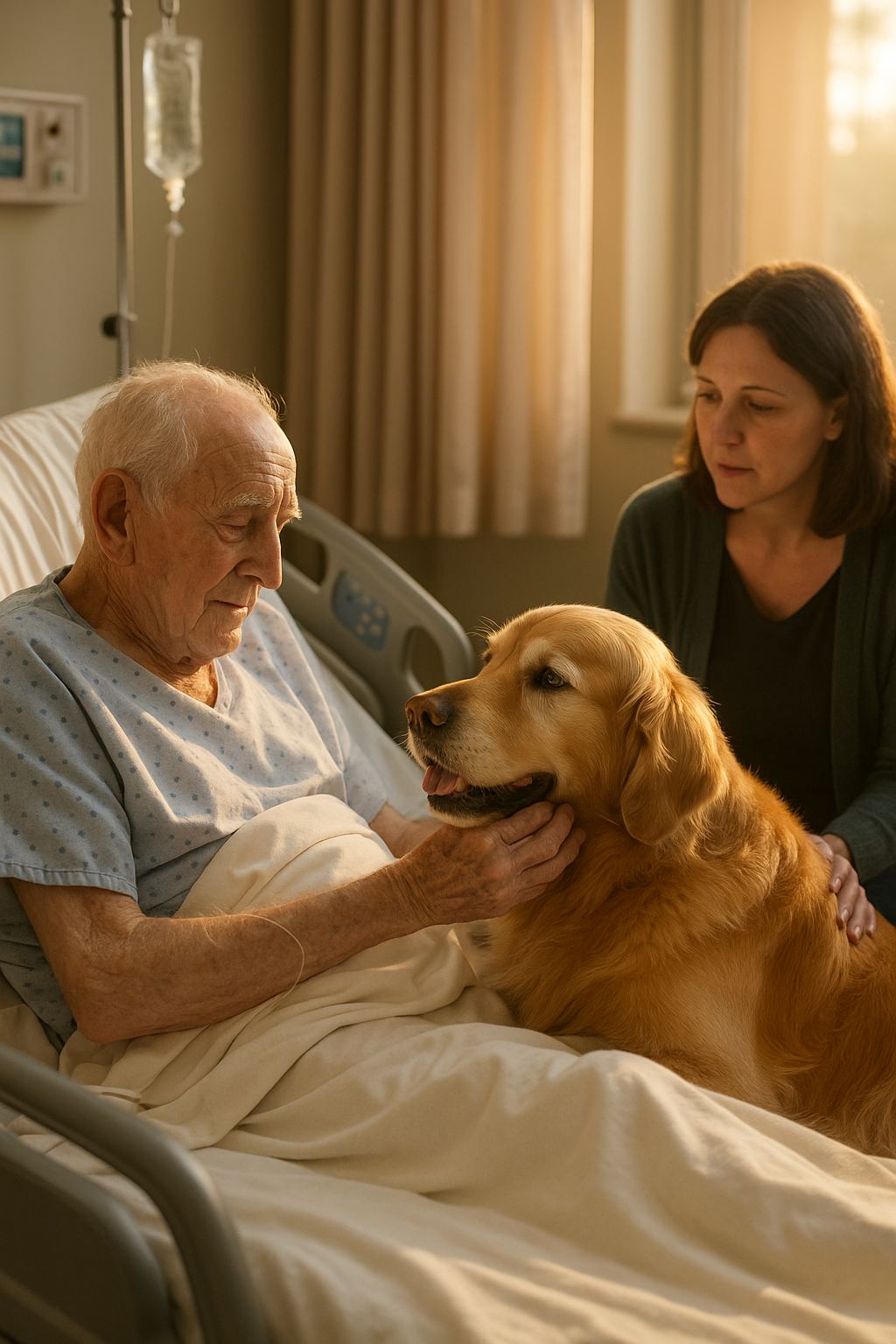
Murphy, now a local celebrity, still visits hospitals with Julie, bringing comfort to others just as he did for Arthur.
And every time a patient whispers, “my good boy,” we smile—because we know exactly what that means.
Sometimes, love isn’t found in words. It’s found in a wagging tail, a familiar nuzzle, and the warmth of a loyal friend who never left your side.
Share if you believe in the healing power of love—and dogs like Murphy. 🐾💛


